Vision Seminar Series
Total:
displaying 15 out of 34 results
-
 Read more
Read more -

Newer Modalities for the Management of Glaucoma
Read more -
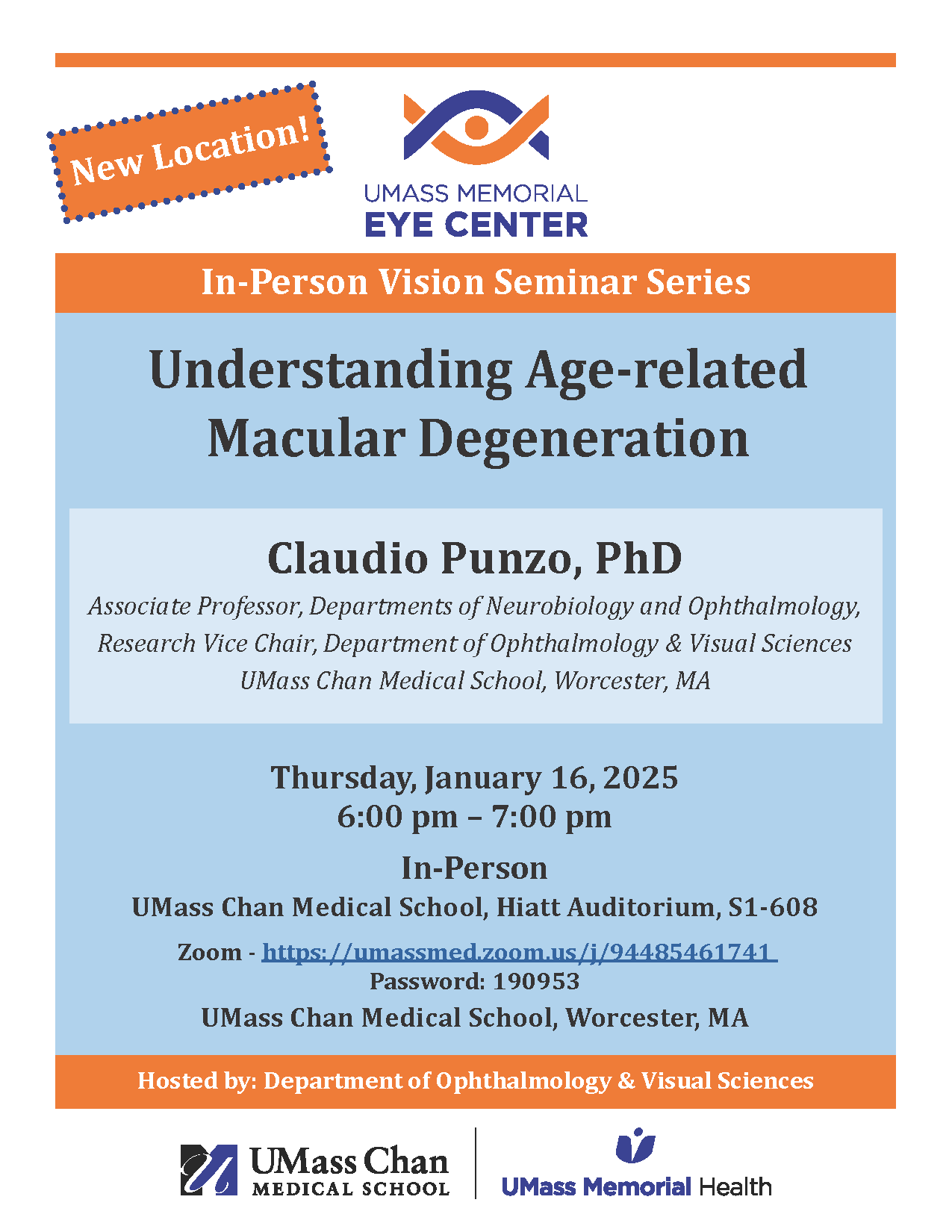
Understanding Age-related Macular Degeneration
Read more -
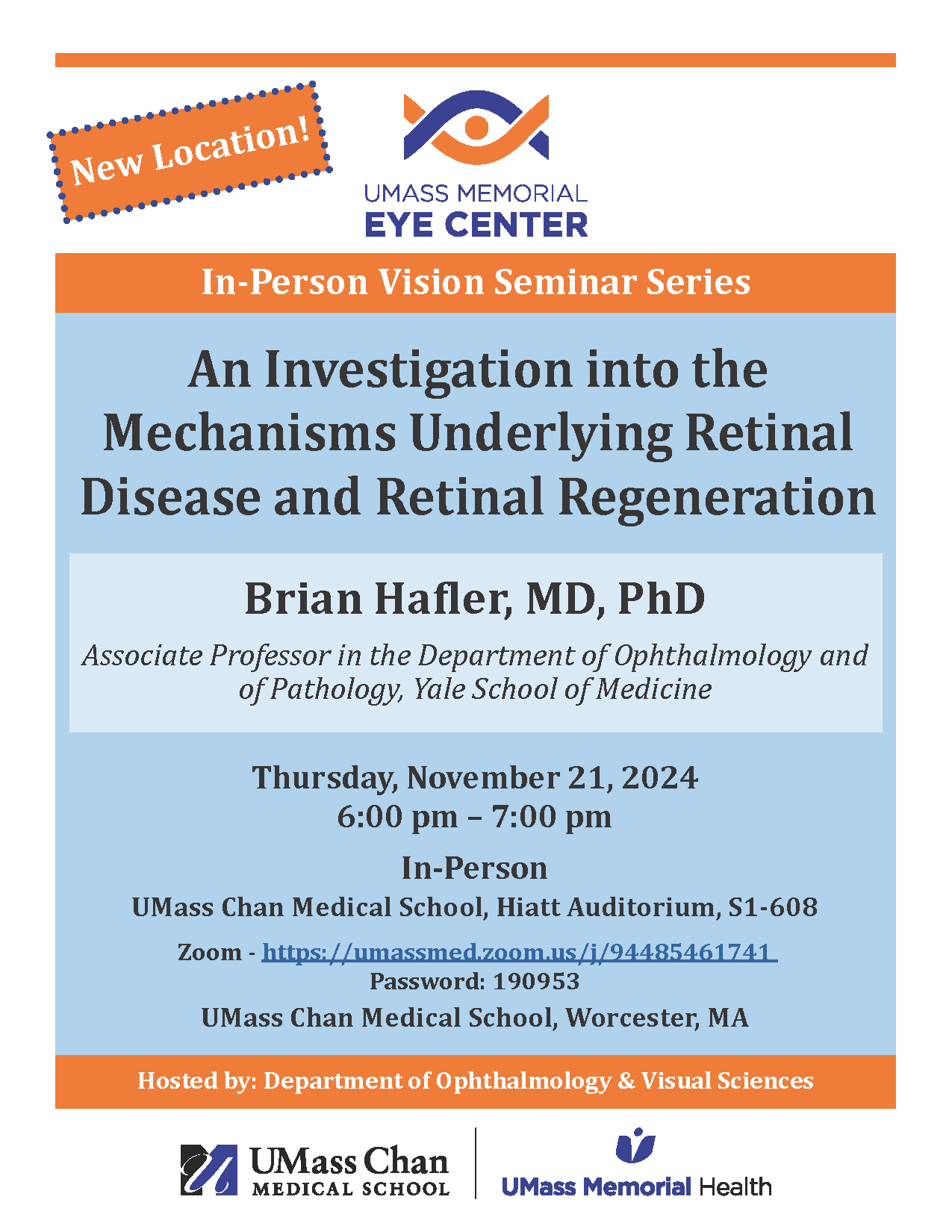
An Investigation into the Mechanisms Underlying Retinal Disease and Retinal Regeneration
Read more -
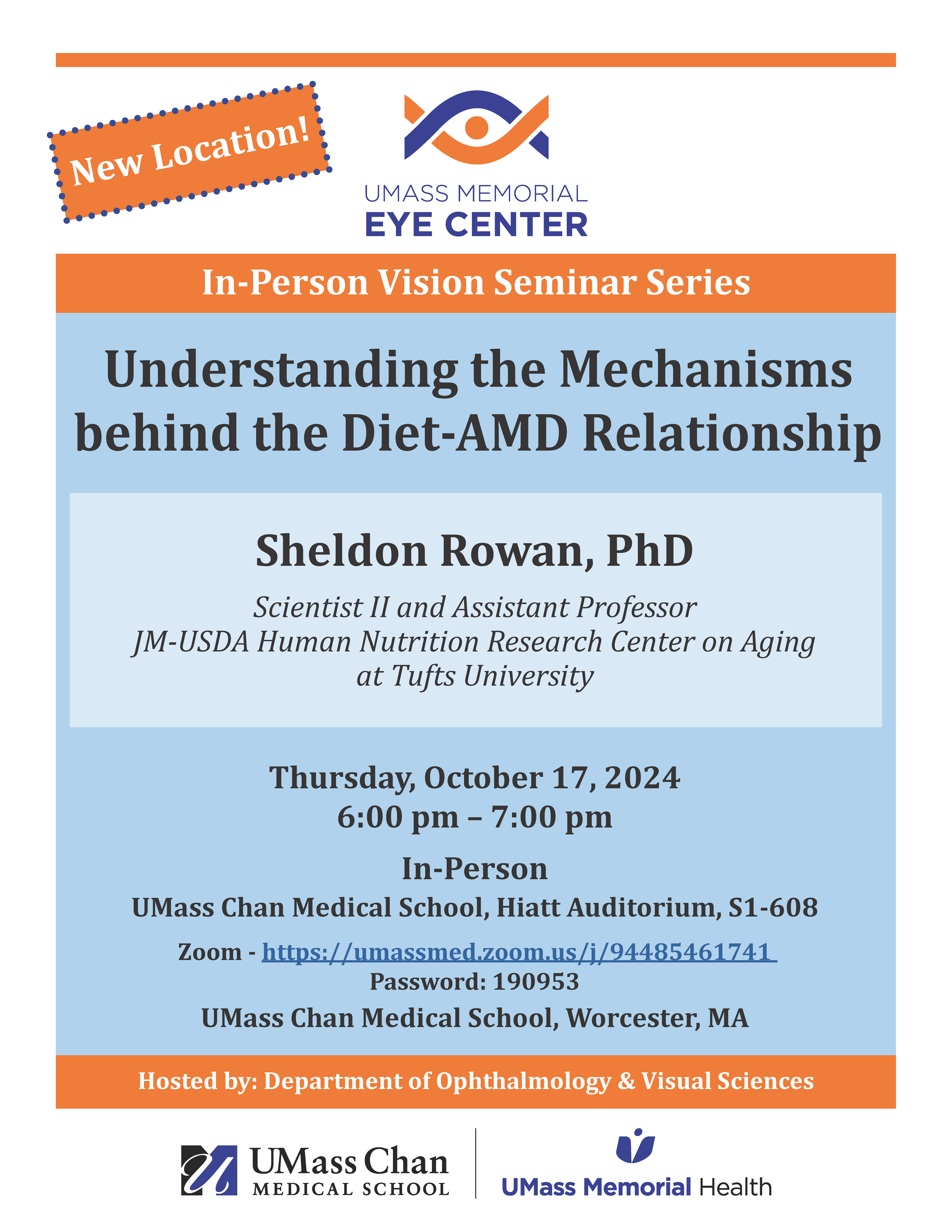
Understanding the Mechanisms behind the Diet-AMD Relationship
-

Field Expansion Device for Patients with Monocular Vision
Read more -

Academic Calendar 2024-2025 Seminar Series
Read more -
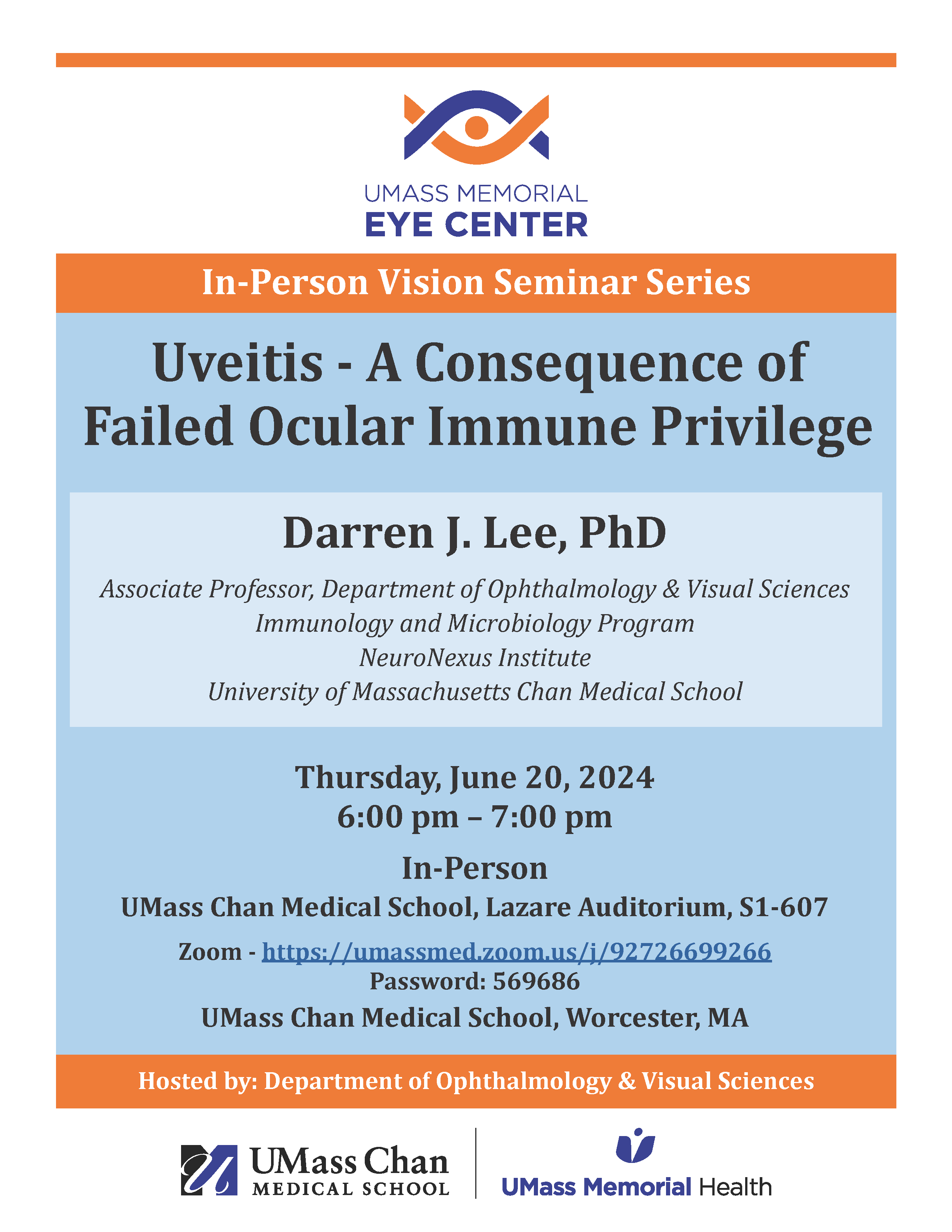
Uveitis - A Consequence of Failed Ocular Immune Privilege
Read more -
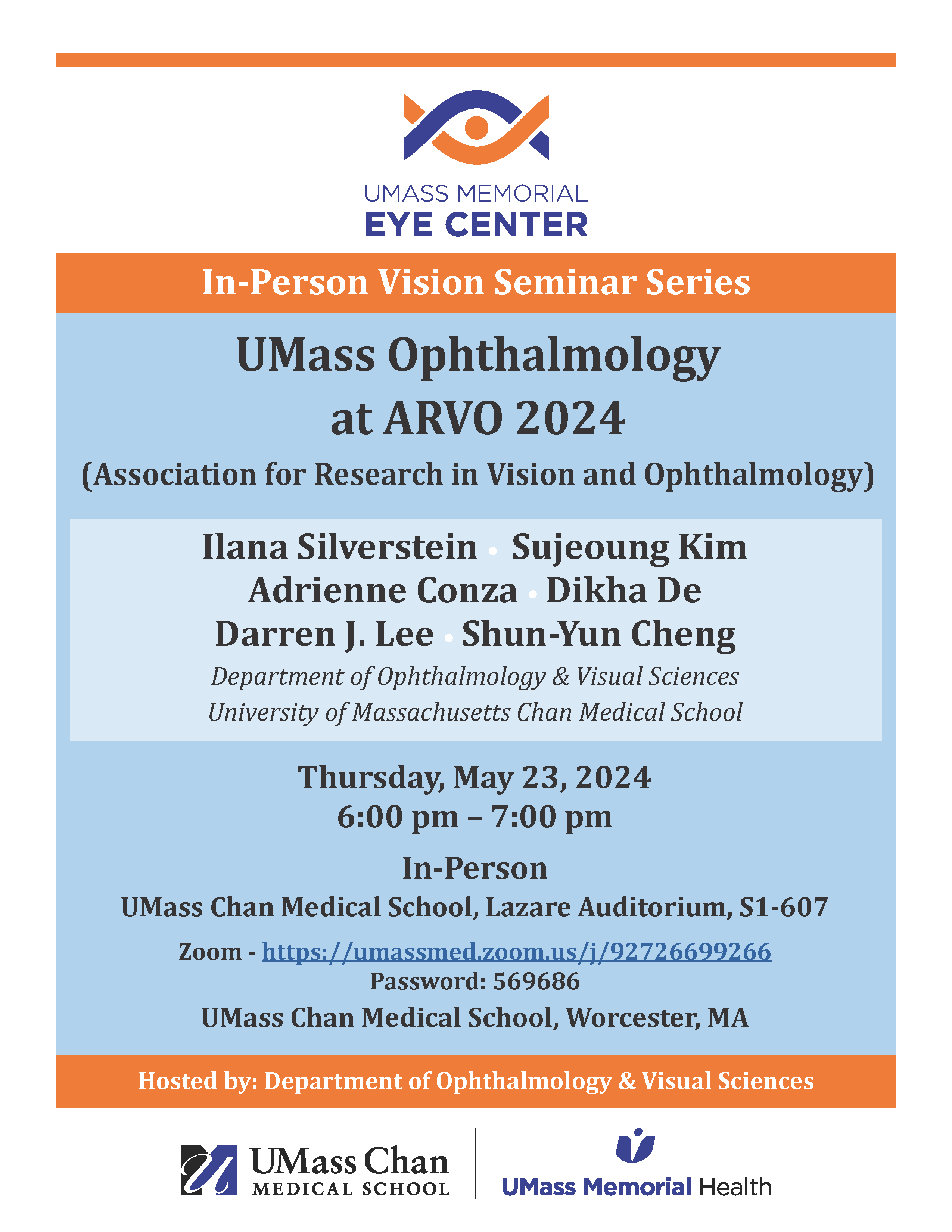
UMass Ophthalmology at ARVO 2024
Read more -
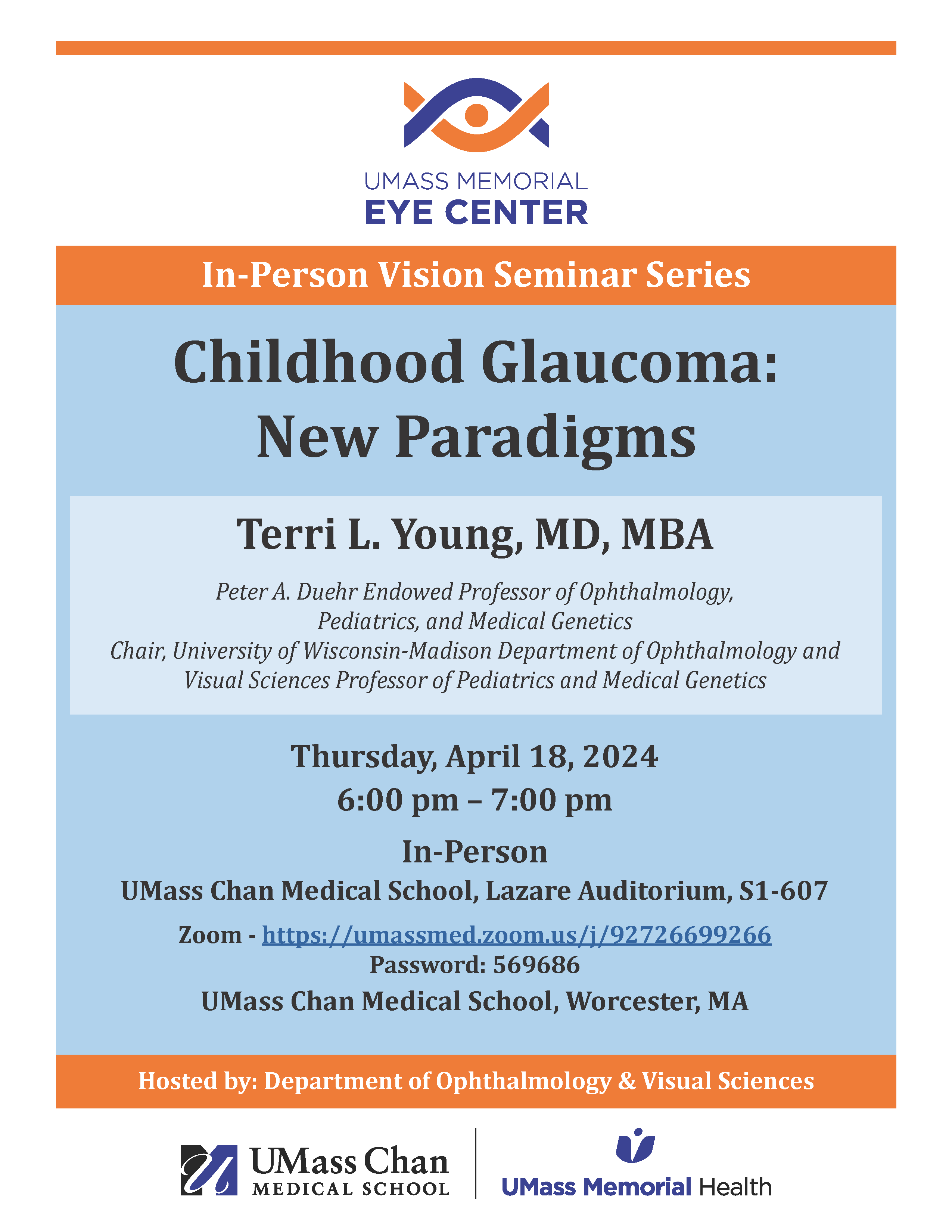
Childhood Glaucoma: New Paradigms
-
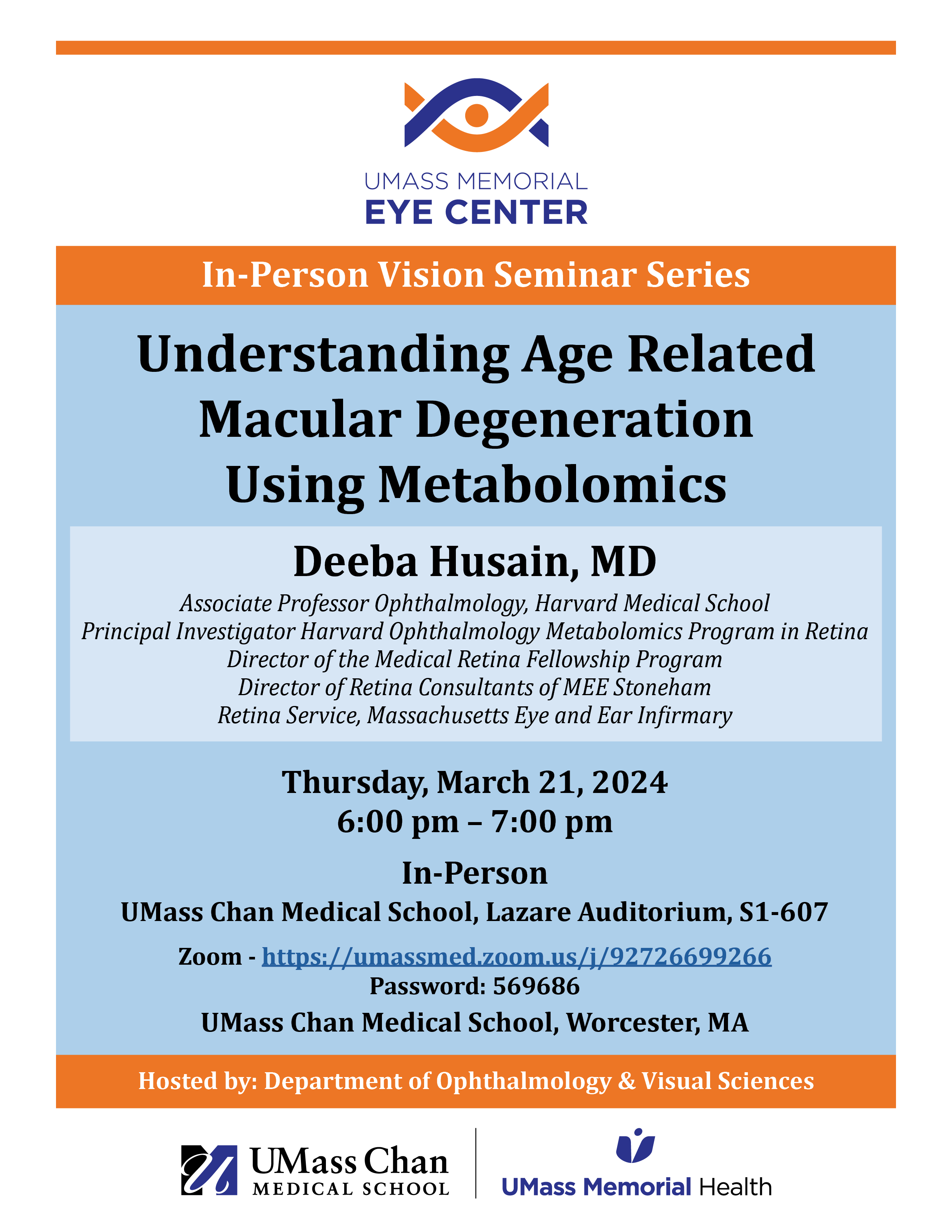
Understanding Age Related Macular Degeneration Using Metabolomics
Read more -
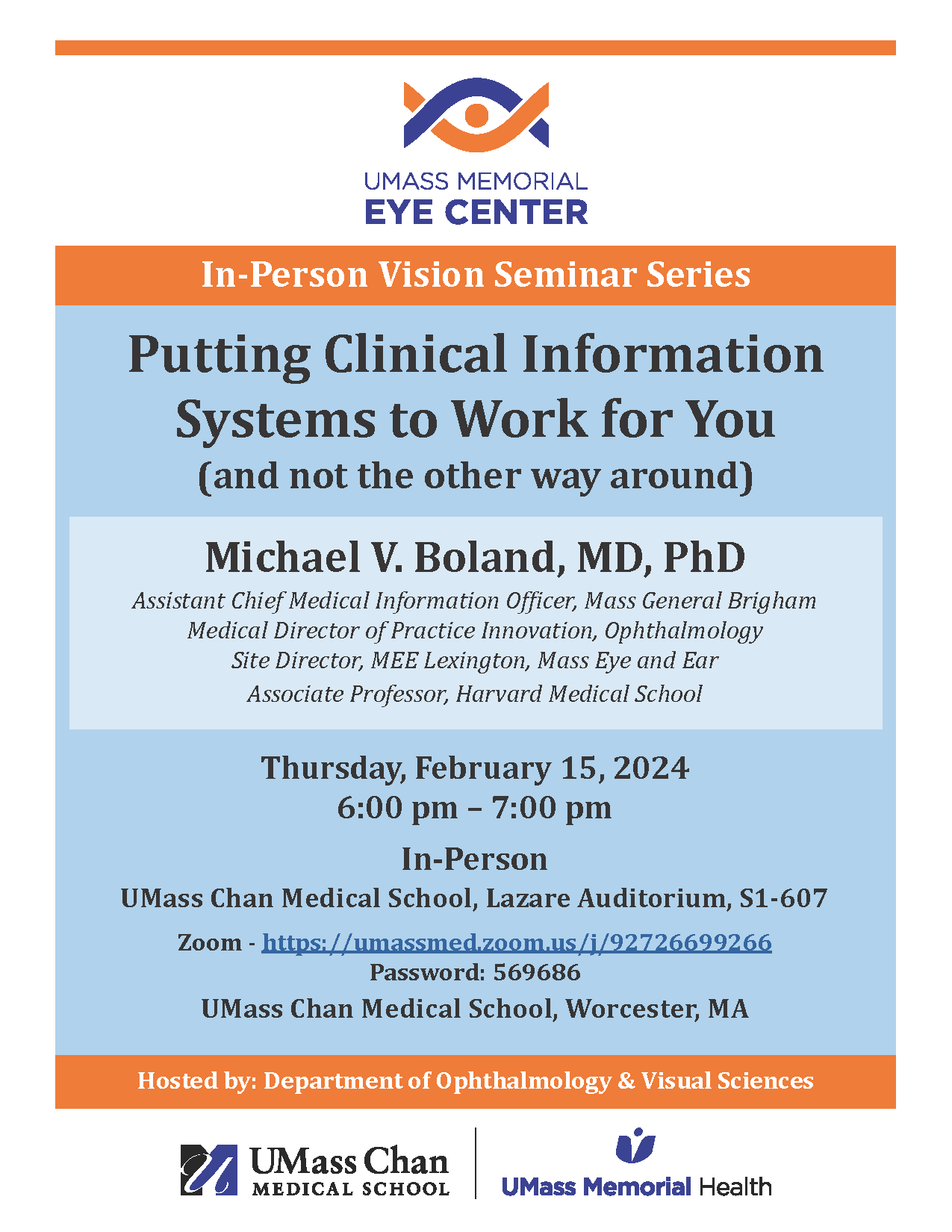
Putting Clinical Information Systems to Work for You (and not the other way around)
-
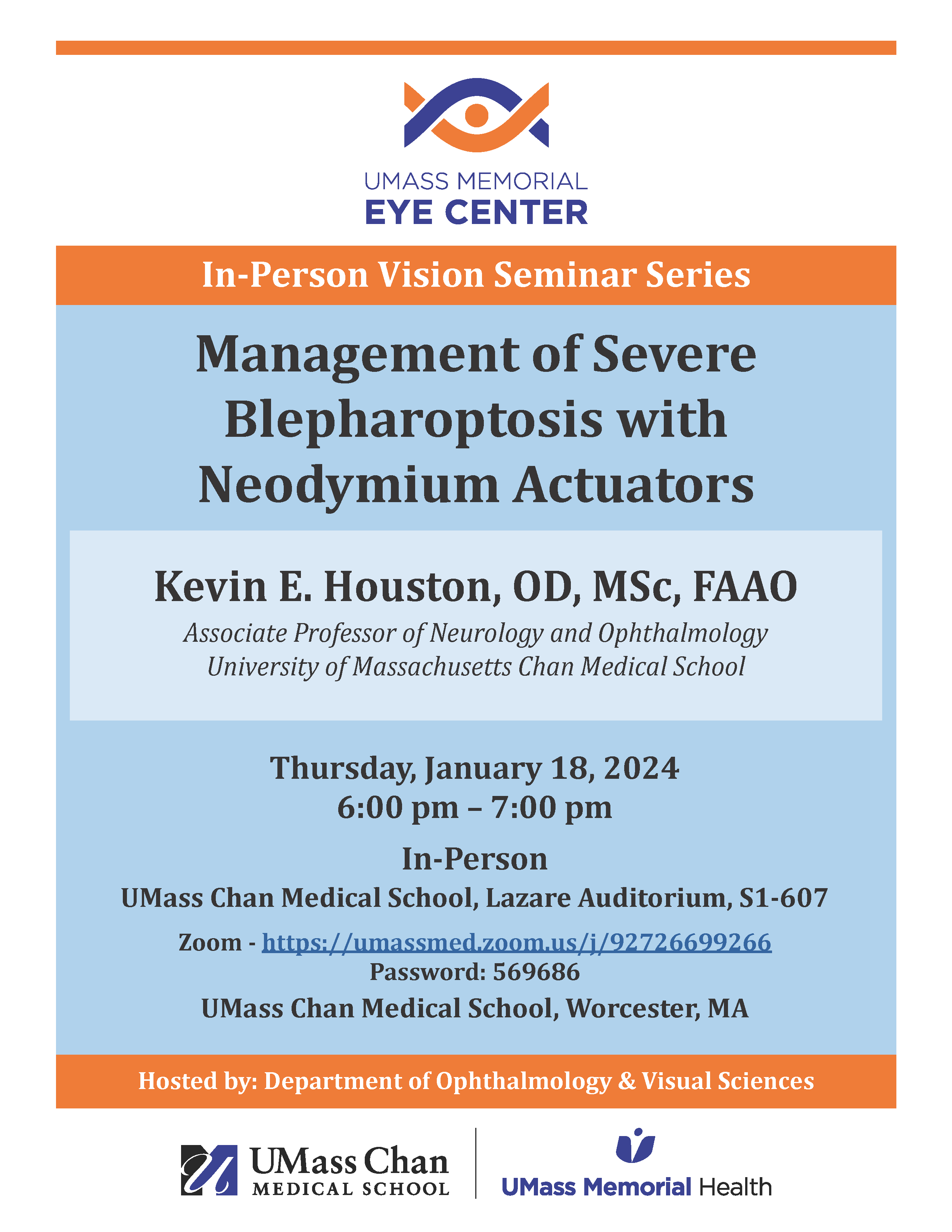
Management of Severe Blepharoptosis with Neodymium Actuators
Read more -
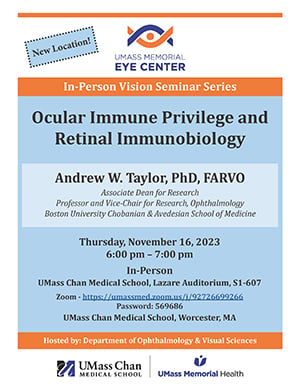
Ocular Immune Privilege and Retinal Immunobiology
Read more -
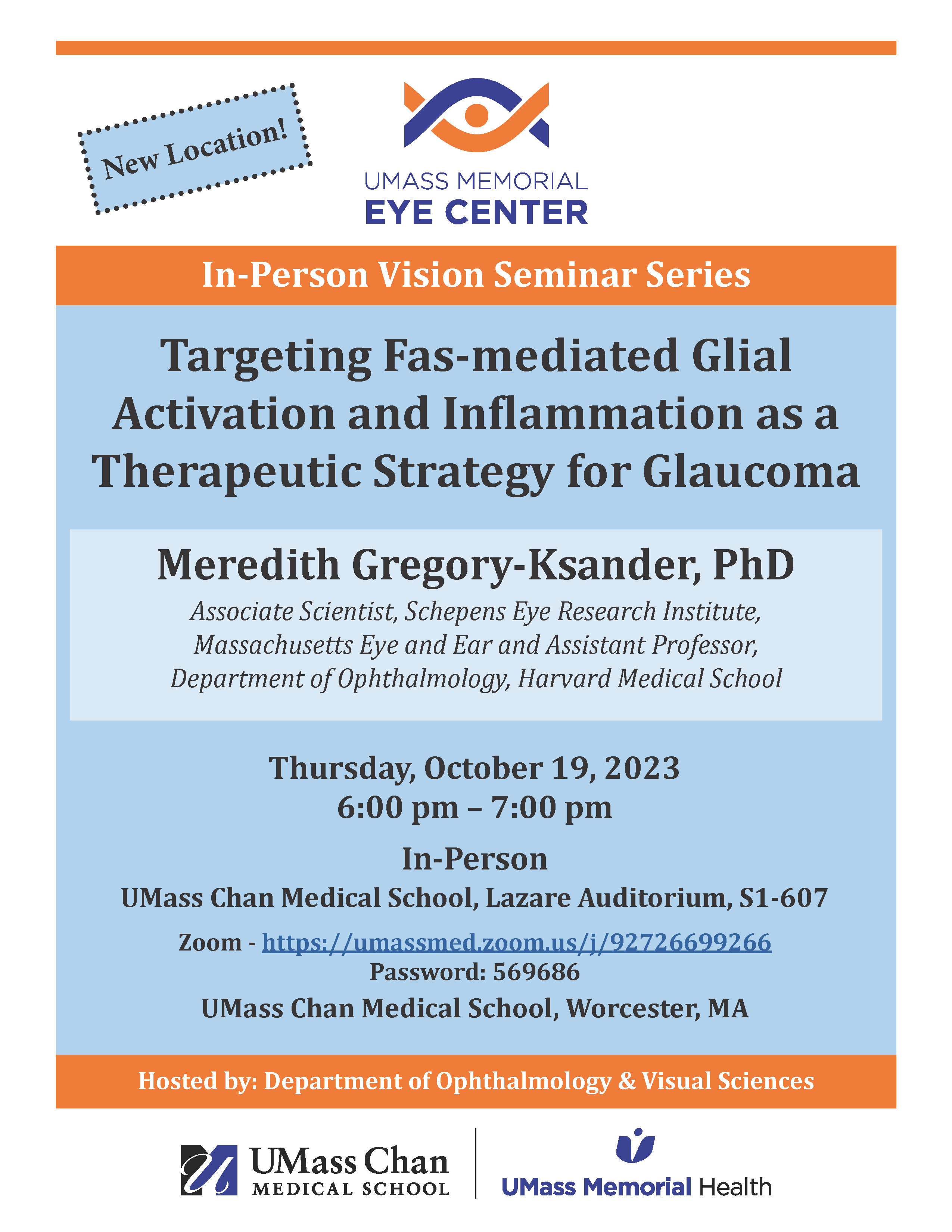
Targeting Fas-mediated Glial Activation and Inflammation as a Therapeutic Strategy for Glaucoma
Read more -
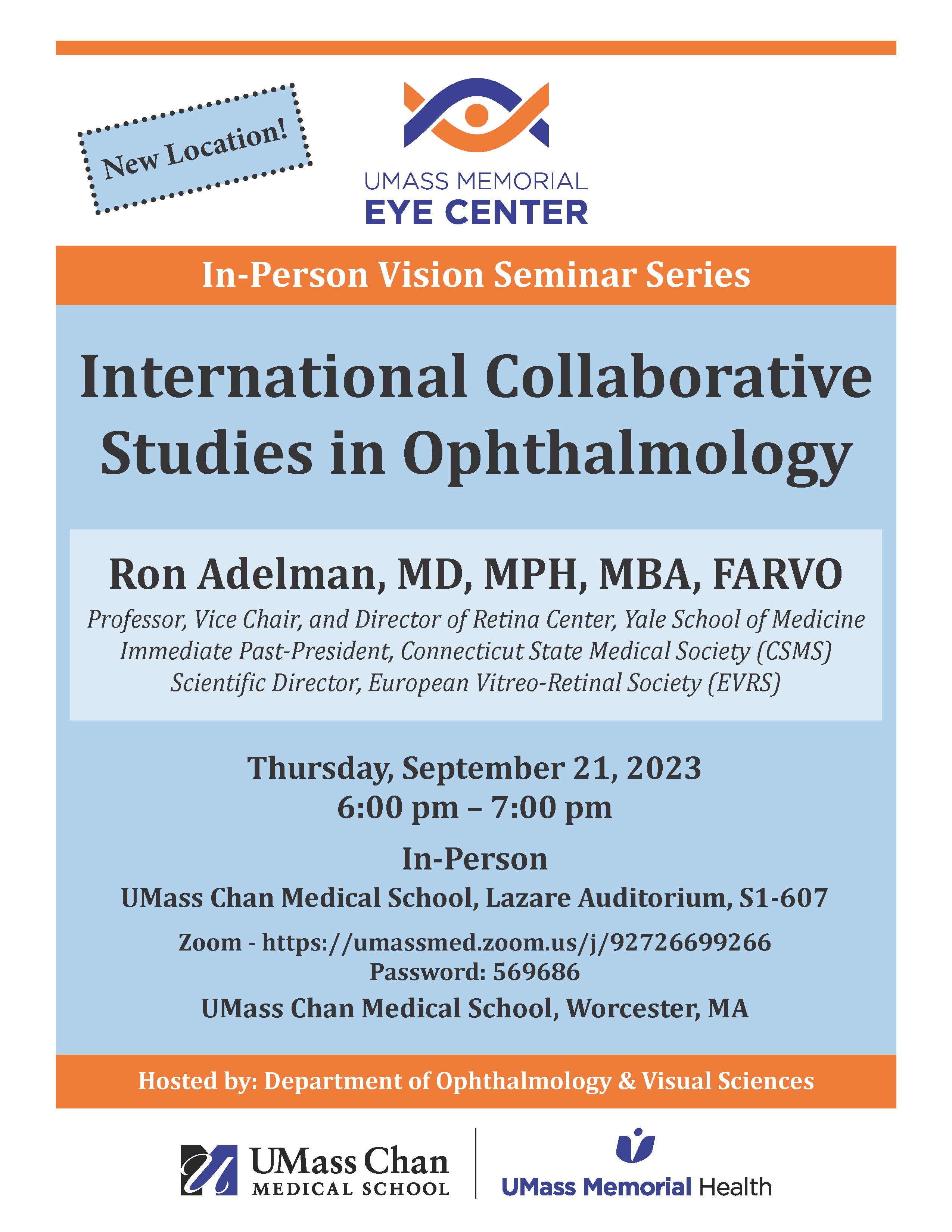
International Collaborative Studies in Ophthalmology
Read more -
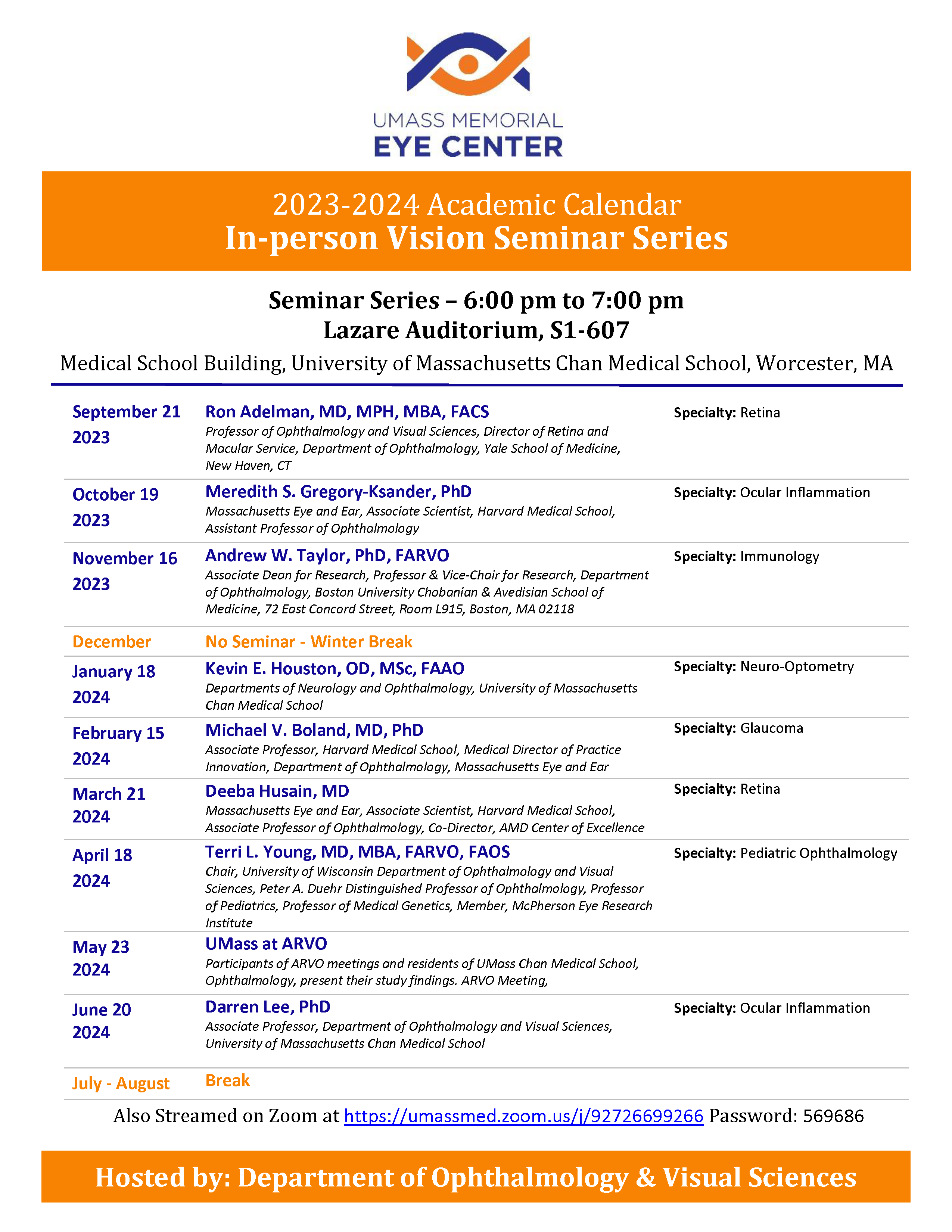
Academic Calendar 2023-2024 Seminar Series
Read more -

Regulation and Translation of Human Gene Therapy
Read more -
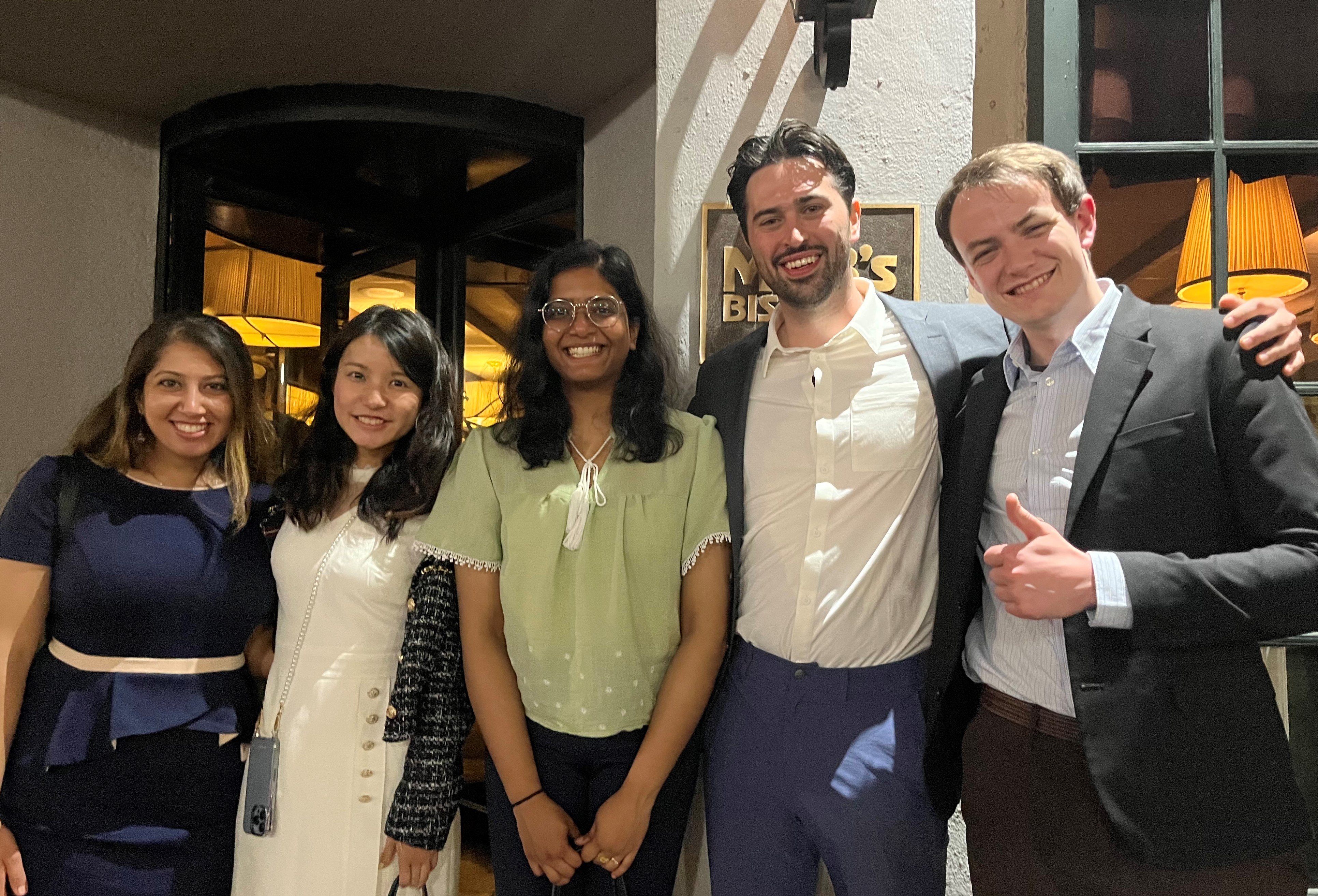
UMass at ARVO
Read more -
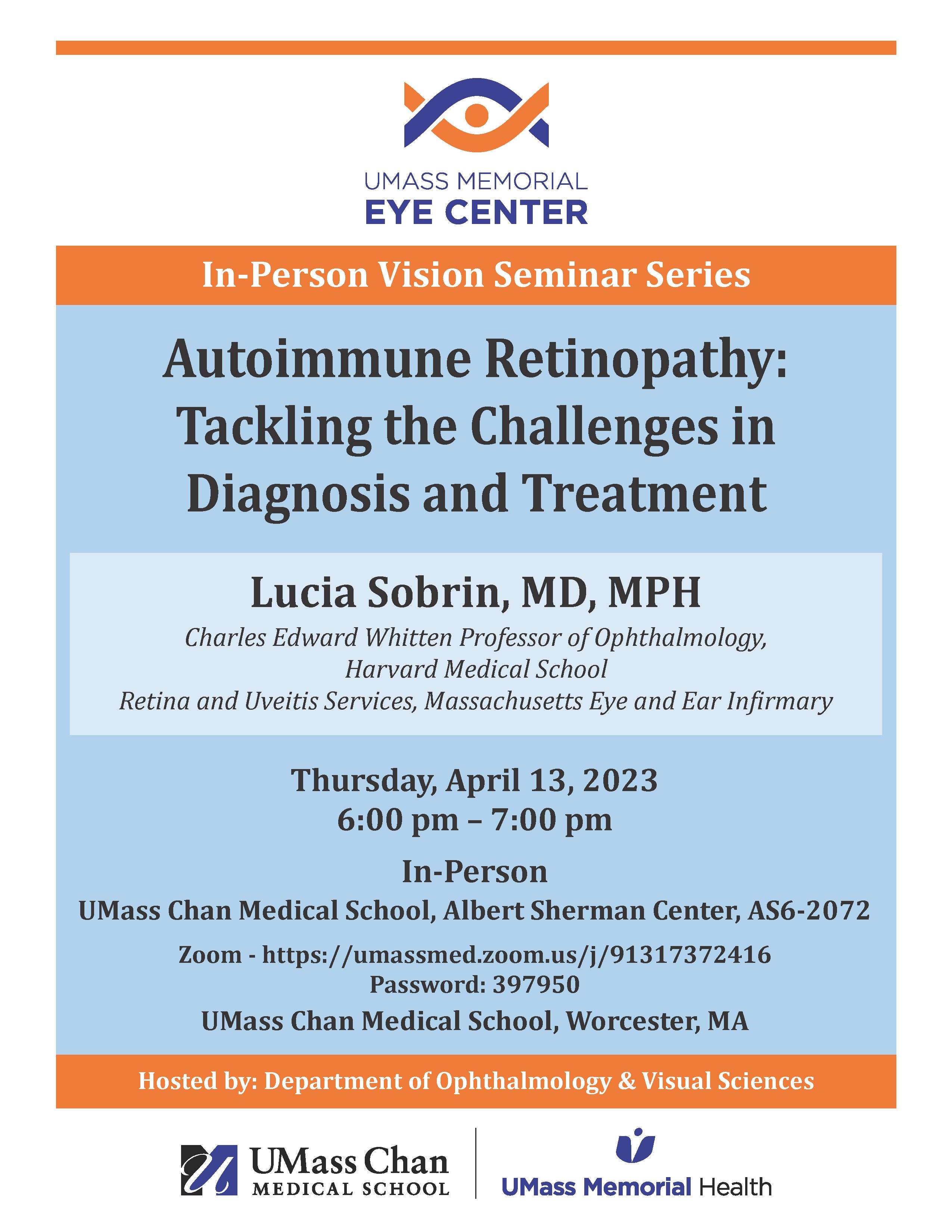
Autoimmune Retinopathy: Tackling the Challenges in Diagnosis and Treatment
Read more -
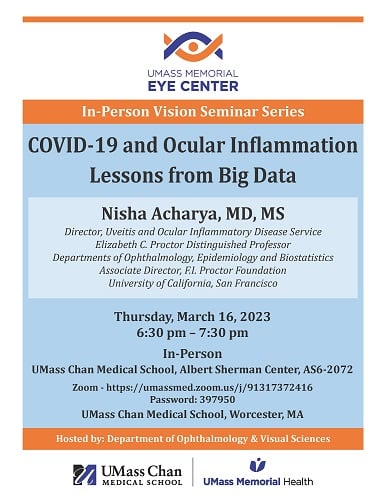
COVID-19 and Ocular Inflammation/Lessons from Big Data
Read more -
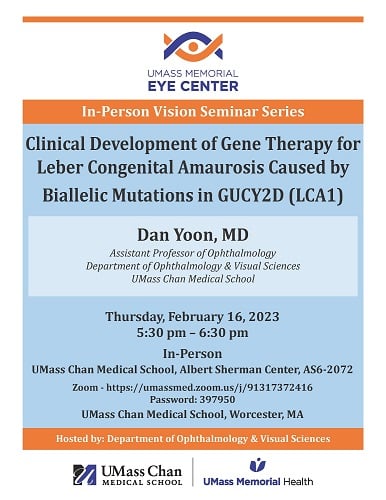
Clinical Development of Gene Therapy for Leber Congenital Amaurosis Caused by Biallelic Mutations in GUCY2D (LCA1)
Read more -
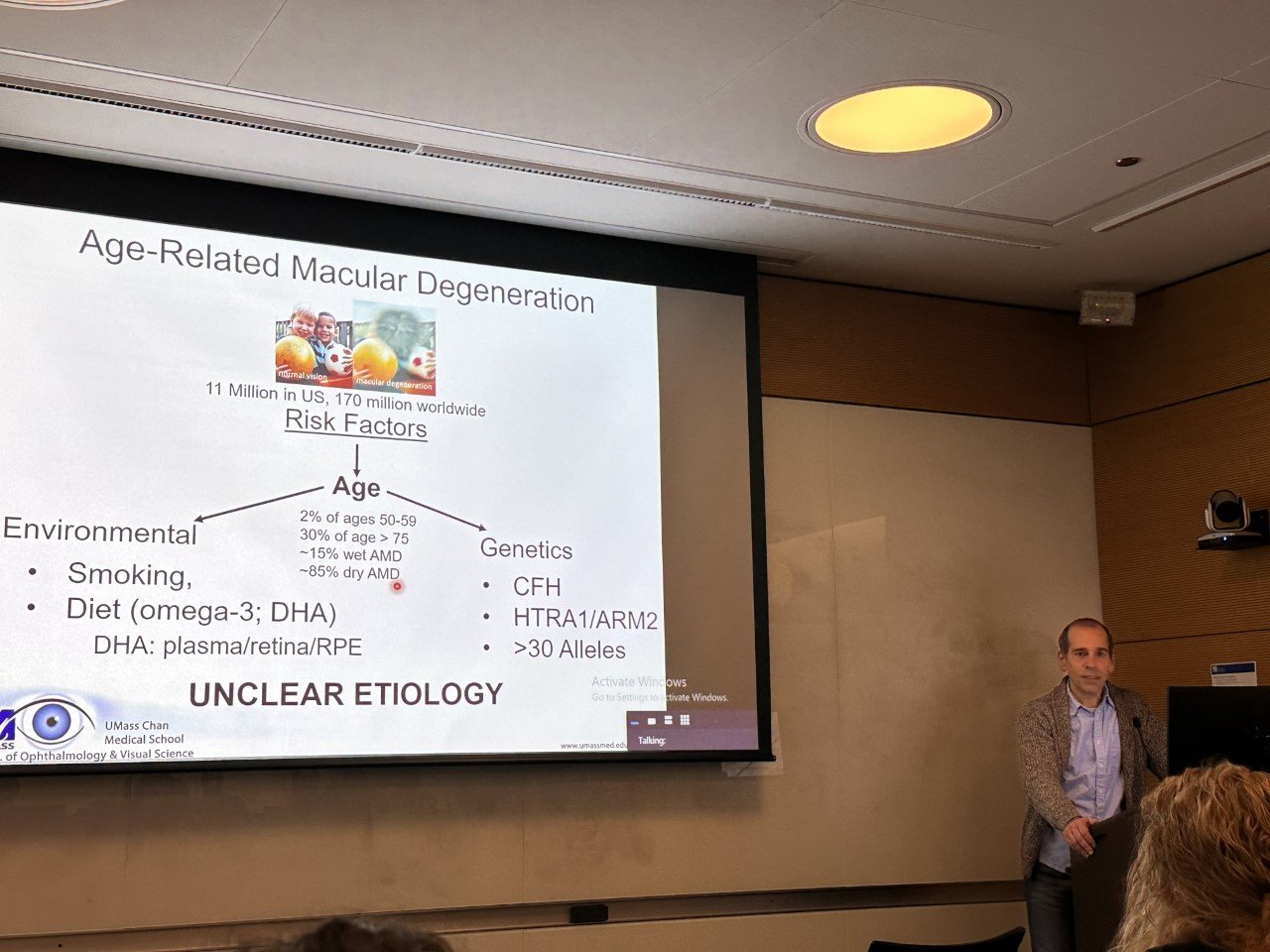
Photoreceptor Metabolism in Age-related Macular Degeneration Pathogenesis
Read more -

Diabetic Retinopathy Screening Using Artificial Intelligence in a Primary Care Setting
Read more -
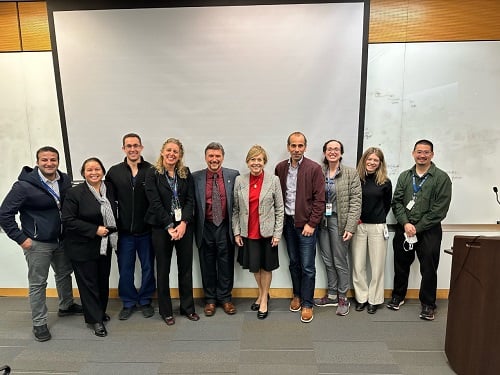
Inflammatory Autoimmune-mediated Complications in Inherited Retinal Diseases (IRDs): Characterization, Management and Potential Implications for IRD Trials and Studies
Read more -
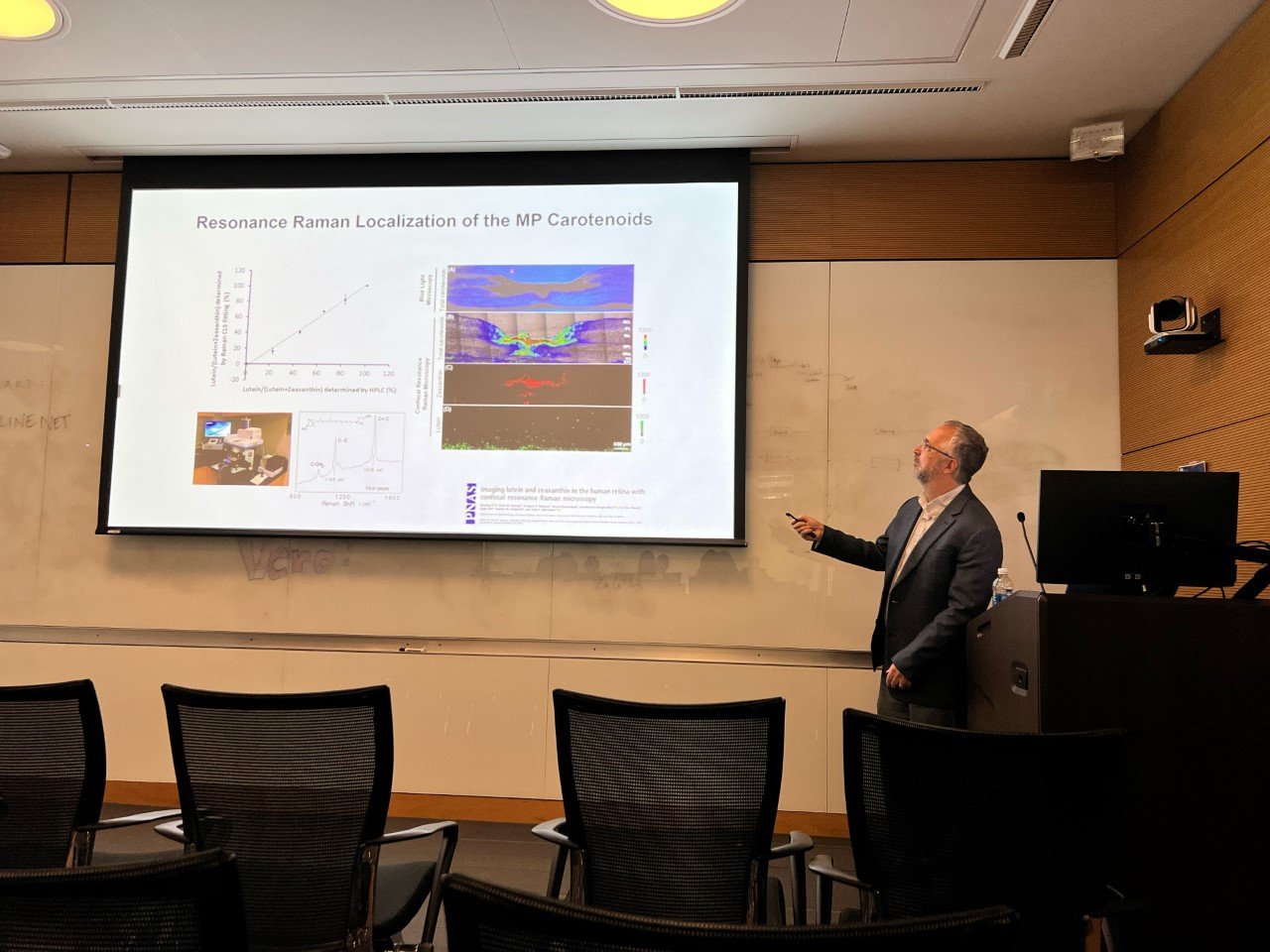
The Role of Carotenoids and Very-long-chain Polyunsaturated Fatty Acids in Retinal Health and Disease Throughout the Lifespan
Read more -
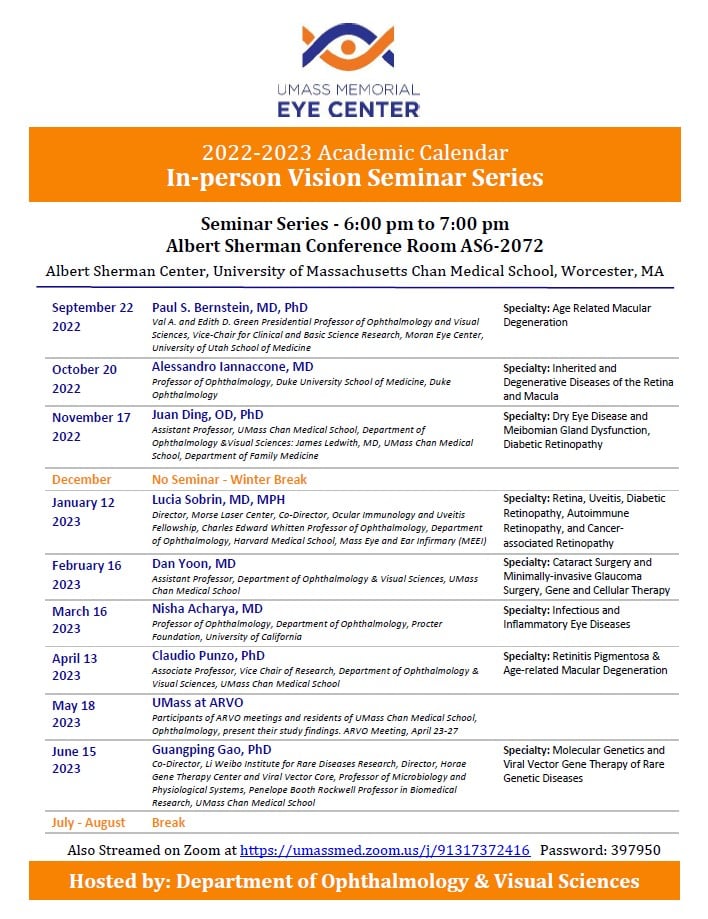
Speakers for Seminar Series 2022-2023
Read more -

UMass Ophthalmology at ARVO 2022
Read more -
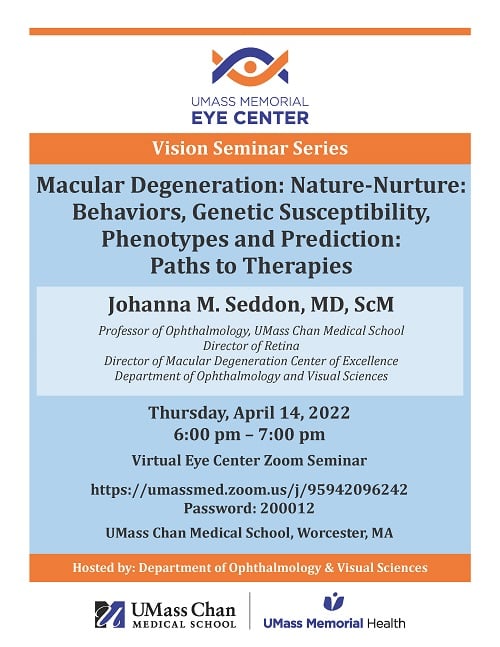
Macular Degeneration: Nature-Nurture: Behaviors, Genetic Susceptibility, Phenotypes and Prediction: Paths to Therapies
Read more -
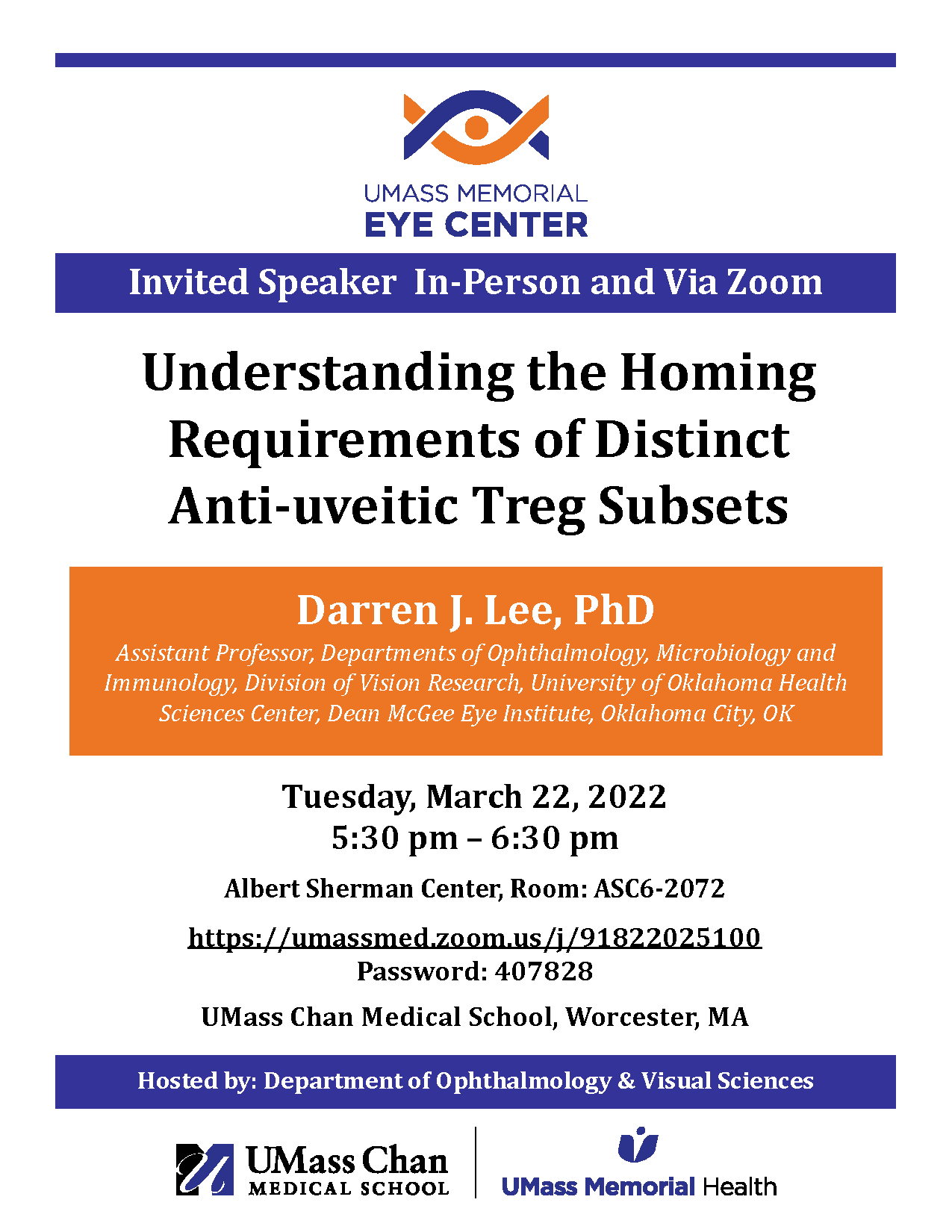
Understanding the Homing Requirements of Distinct Anti-uveitic Treg Subsets
Read more -

Retinal Very Long Chain Polyunsaturated Fatty Acids: When the Fats Matter
Read more -
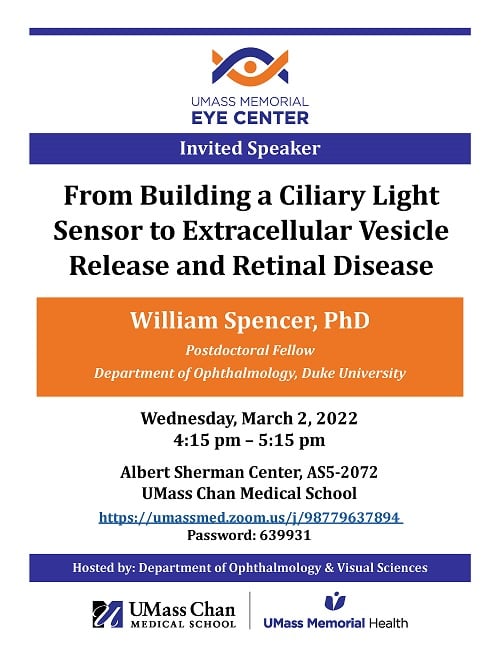
From Building a Ciliary Light Sensor to Extracellular Vesicle Release and Retinal Disease
Read more -
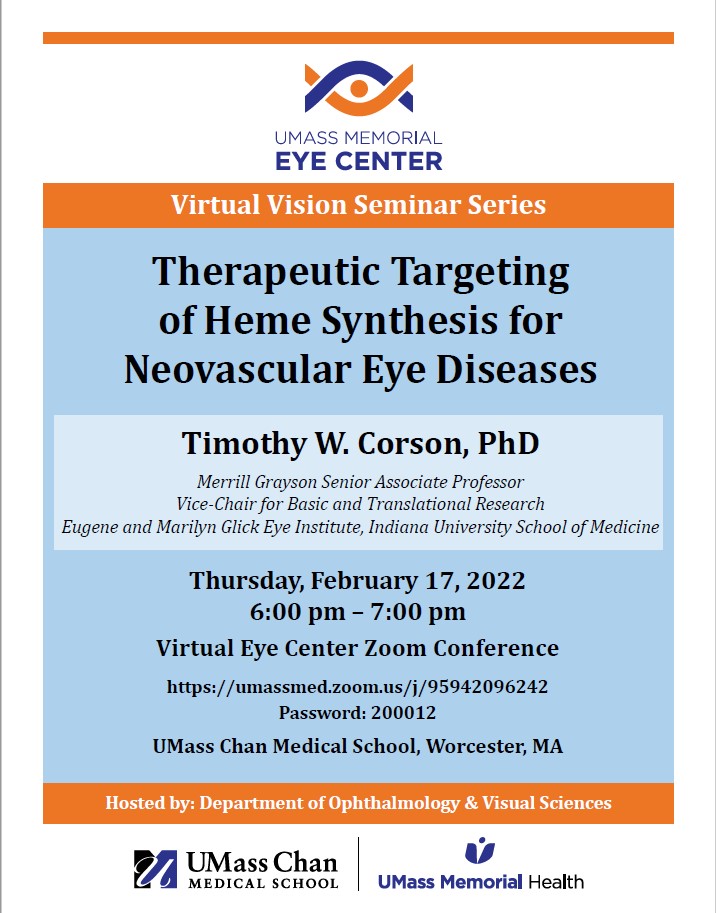
Therapeutic Targeting of Heme Synthesis for Neovascular Eye Diseases
Read more -

Metabolic Regulation of Innate Immune Response in Ocular Infection
Read more
